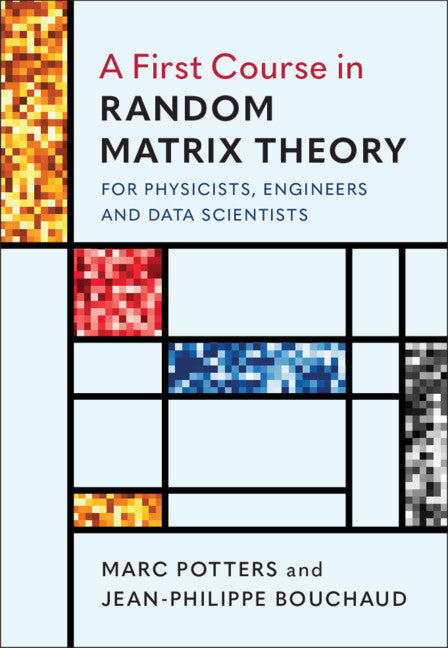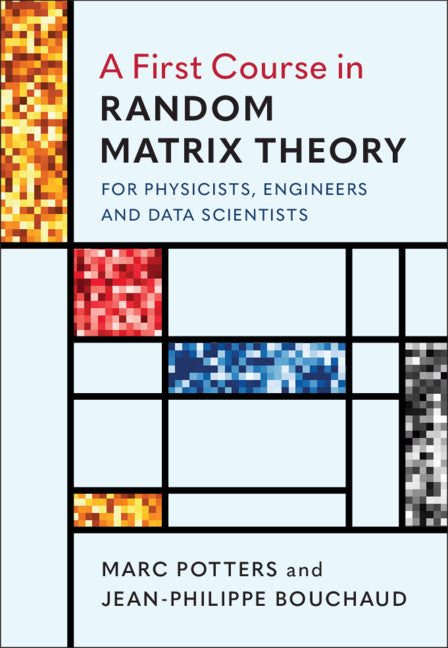Freshly Printed - allow 8 days lead
Couldn't load pickup availability
A First Course in Random Matrix Theory
for Physicists, Engineers and Data Scientists
An intuitive, up-to-date introduction to random matrix theory and free calculus, with real world illustrations and Big Data applications.
Marc Potters (Author), Jean-Philippe Bouchaud (Author)
9781108488082, Cambridge University Press
Hardback, published 3 December 2020
370 pages
25 x 17.5 x 2.2 cm, 0.82 kg
The real world is perceived and broken down as data, models and algorithms in the eyes of physicists and engineers. Data is noisy by nature and classical statistical tools have so far been successful in dealing with relatively smaller levels of randomness. The recent emergence of Big Data and the required computing power to analyse them have rendered classical tools outdated and insufficient. Tools such as random matrix theory and the study of large sample covariance matrices can efficiently process these big data sets and help make sense of modern, deep learning algorithms. Presenting an introductory calculus course for random matrices, the book focusses on modern concepts in matrix theory, generalising the standard concept of probabilistic independence to non-commuting random variables. Concretely worked out examples and applications to financial engineering and portfolio construction make this unique book an essential tool for physicists, engineers, data analysts, and economists.
Preface
Part I. Classical Random Matrix Theory: 1. Deterministic Matrices
2. Wigner Ensemble and Semi-circle Law
3. More on Gaussian Matrices
4. Wishart Ensemble and Marcenko-Pastur Distribution
5. Joint Distribution of Eigenvalues
7. The Jacobi Ensemble
Part II. Sums and Products of Random Matrices: 8. Addition of Random Variables and Brownian Motion
9. Dyson Brownian Motion
10. Addition of Large Random Matrices
11. Free Probabilities
12. Free Random Matrices
13. The Replica Method
14. Edge Eigenvalues and Outliers
Part III. Applications: 15. Addition and Multiplication: Recipes and Examples
16. Products of Many Random Matrices
17. Sample Covariance Matrices
18. Bayesian Estimation
19. Eigenvector Overlaps and Rotationally Invariant Estimators
20. Applications to Finance
Appendix A. Appendices: Mathematical Tools
List of Symbols
Index.
Subject Areas: Data mining [UNF], Data capture & analysis [UNC], Algorithms & data structures [UMB], Engineering: general [TBC], Mathematical modelling [PBWH], Data analysis: general [GPH]


